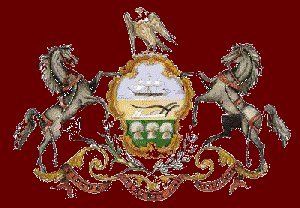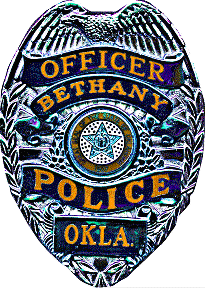




Orginally, the Constable was responsible for keeping the militia and armaments of the king, and those of the individual villages, in a state of preparedness for the protection of the village communities throughout England. The office eventually became an integral arm of the military throughout Britain. During the reign of King Stephen, the office of Lord High Constable was established, and those who filled this position became the King's representatives in all matters dealing with the military affairs of the realm and the overseeing of the King's castle.
Henry King of England and duke of Normandy and Count of Anjou son King henry to William Velud greeting. I forbid you unjustly to molest or to have molested the monks of Horton concerning the land of Huntbourne....And unless you do it the keeper of the constablewick of saltwood shall have it done....
This reference to a "constablewick" (custos constablilie) indicates that the king had direct contact through his writs to the constables then operating in Britian.
The constable, then, seems to have been cloaked in a number of roles under the reigns of the early Norman kings. He was in charge of military affairs for the king throughout his realm and served as an enforceing agent of the king's writs. This combination of duties reflect the medieval charachter of the office when feudal government and its political institutions spread throughout Britain to assure that peace was maintained even in the remotest corners of the country far from the King's protection. During the Tudor period (Henry VIII to Elisabeth I) the constable still maintained his position as a military representative of the monarch. His duty was "to prepare the muster of his district which the constable of the Shire would embody in the array of the country to be in turn marshalled in the army of the realm by the high constable of England."
Local settlements in England depended on constables to assure the maintenance of the peace. Election of petty constable as established under the reign of Edward became the basis for local control of the
In a manner similar to their English counterparts the new American constable had his roots in the military aspects of the community at least in New England. the constable of the early New England settlements bore many of the same duties and responsibilities of his counterparts in England. He was the keeper of the peace and a marshal of the early militias, established to protect the village in which he was administrator. By common law tradition, the constable was the primary official in the community and a community was not recognized as an established village or parish unless a constable was present in the community.
Constables in the newly forming colonies of America brought with them some of the trappings of the English constable. But the duties of the office were not consistent in all areas of the American colonies. In 1634 Joshua Pratt was chosen constable in Plymouth. Among his duties were the carring out of any punishments meted out by local tribunals, sealer of weights and measurements, surveyor of the land, responsibility for announcing any forthcoming marriages in the community, and delivery and execution of all warrants. While many duties were delegated to officials other than the constable, in general the constable was responsible for the "Watch and Ward", the Ward during the day, and the Watch at night in order to keep the community peaceful. The New England settlers went as far as to appoint Indian constables each holding office for a year and responsible for overseeing nine other Indians under his command, and was obligated to report to appropriate officials any acts of misconduct.
The constables of the New England colonies bear great resemblance to the constables of Pennsylvania. Originally, Pennsylvania was part of the holdings of the Duke of York whose strict system of laws was administered by constables throughout his holdings. Later, under King Charles II land was granted within the Duke's realm to William Penn. Under Penn's governance, he and his functionaries chose constables during the early organization of the colony. Unlike their New England counterparts they were not appointed to oversee individual communities, but were appointed to hold governance over a particular geographic region. Later on with the incorporation of townships and boroughs provisions were made for the election or appointment of constables within those districts.
The role of the constable in any particular area in Pennsylvania depended largely on the form of municipal government in that particular area. In the township or ward, the constable's duties were established and uniform from one township or ward to the next. Constables in townships and wards were chosen annually, and on the same day as the selection of other local officers. The names of the men chosen to be constable by the electorate were then submitted to their governing court of Quarter Sessions. The man chosen by the local electorate was then sent to the Court of Quarter Sessions where his eligibility was determined by the Judge of that court.
Among other things, the candidate had to have a freeshold estate of the value of at least $1,000. Those candidates chosen for the office in the township or ward were required by law to make an appearance before the Court of Quarter Sessions in order to accept the office and wait for Judge's determination eligibility. If the man selected did not attend the court at the prescribed time, he was fined forty dollars. If he declined to serve after electiion he was penalized sixteen dollars.
Constables of towns, wards or townships were cloaked with the duties of local peacekeeper. They were required to maintain the peace, execute all warrants directed to them by the local justice and to assure that no unruly crowds were allowed to gather. If while in office any constable refused to perform his duties heavy fines were provided for in law.
While the office of constable was fairly uniform within towns, townships, and wards, the duties of the constable were not uniformly established in the borough system in the colony of Pennsylvania. In the Borough of Bristol, established in the early eighteenth century, the constable aside from all his peace-keeping duties was also clerk of the market, and in addition, regulated the sale of bread, wine, beer, and wood. In Lancaster and Carlisle boroughs the constable along with the burgess and their assistants were permitted to convene town meetings, to pass local ordinances and levy fines.
By 1830 with the establishment of police forces in many of the larger municiplities in Pennslyvania the dutes and powers of the constables began to erode, out of disuse (not by statue), in many of the larger cities.
By 1873 constables were given uniform powers throughout the state.
The newly passed revision of the Pennsylvania's constitutiion called for a regularization of all laws dealing with borough government. Constables of the boroughs of Pennsylvania were now given uniform authority to make arrests on view as their counterparts in towns, townships and wards were allowed to do.
A Constable is a Law Enforcement Professional that performs private, civil and official services. Constables date back to early English times, are described in the Magna Carta, and were the first Peace Officers in Pennsylvania. Constables carry the powers of arrest, both when executing Arrest Warrants, and for breaches of the peace they witness within the boundaries of the Commonwealth. Constables are required to attend and pass an 80 hour training academy to receive certification through the Pennsylvania Commission on Crime and Delinquency under Act 44, and to successfully complete 40 hours of yearly updates on law and firearms training to maintain their certification.
All costs for training are paid through a surcharge on the papers Constables serve from the District Courts. All costs for equipment, bonds, insurance and expenses are borne solely by the Constable. Constables earn their pay under a State Law called the Constables Fee Bill, and these fee's are paid by the defendant in criminal and summary cases, and up front by the plaintiff in civil cases. The Taxpayer and his money normally do not incur the costs of the Office of the Constable.








"THANK YOU"
"Today may there be peace within. May you trust your God that you are exactly where you are meant to be. May you not forget the infinite possibilities that are born of faith. May you use those gifts that you have received, and pass on the love that has been given to you.
May you be content knowing you are a child of God. Let this presence settle into your bones, and allow your soul the freedom to sing, dance,and to bask in the sun. God is always there; He neither leaves nor forsakes you."







|
2000 YTD E-Commerce

|
 |








 PLEASE "JUST CLICK HERE TO BE TAKEN TO The Definition Of a Constable And Ethics PAGE"
PLEASE "JUST CLICK HERE TO BE TAKEN TO The Definition Of a Constable And Ethics PAGE"
 PLEASE "JUST CLICK HERE TO BE TAKEN TO THE MEMORIAL PAGE"
PLEASE "JUST CLICK HERE TO BE TAKEN TO THE MEMORIAL PAGE"
 PLEASE "JUST CLICK HERE FOR SOME VERY INPORTANT PHONE NUBERS. "
PLEASE "JUST CLICK HERE FOR SOME VERY INPORTANT PHONE NUBERS. "
 PLEASE "JUST CLICK HERE TO BE TAKEN TO THE WEB RING PAGE 1"
PLEASE "JUST CLICK HERE TO BE TAKEN TO THE WEB RING PAGE 1" PLEASE "JUST CLICK HERE TO BE TAKEN TO THE WEB RING PAGE 2"
PLEASE "JUST CLICK HERE TO BE TAKEN TO THE WEB RING PAGE 2"
 PLEASE "JUST CLICK HERE TO BE TAKEN TO THE WEB RING PAGE 3"
PLEASE "JUST CLICK HERE TO BE TAKEN TO THE WEB RING PAGE 3"
 PLEASE "JUST CLICK HERE TO BE TAKEN TO MY PATCH COLLECTION PAGE small AS IT MAY BE"
PLEASE "JUST CLICK HERE TO BE TAKEN TO MY PATCH COLLECTION PAGE small AS IT MAY BE"
 PLEASE "JUST CLICK HERE TO CHECK OUT SOME OF THE BANNERS"
PLEASE "JUST CLICK HERE TO CHECK OUT SOME OF THE BANNERS" PLEASE "JUST CLICK HERE TO CHECK OUT SOME MISSING CHILDREN"
PLEASE "JUST CLICK HERE TO CHECK OUT SOME MISSING CHILDREN"
 PLEASE "JUST CLICK HERE TO CHECK OUT 911 PAGE"
PLEASE "JUST CLICK HERE TO CHECK OUT 911 PAGE"
 PLEASE "JUST CLICK HERE TO SEE PEOPLE THAT I HAVE DONE TRADE'S WITH"
PLEASE "JUST CLICK HERE TO SEE PEOPLE THAT I HAVE DONE TRADE'S WITH"
 "PLEASE JUST PUSH THIS BUTTON TO GO TO THE CONSTITUTION OF THE COMMONWEALTH OF PENNSYLVANIA PAGE 1 OF 3"
"PLEASE JUST PUSH THIS BUTTON TO GO TO THE CONSTITUTION OF THE COMMONWEALTH OF PENNSYLVANIA PAGE 1 OF 3"
 "PLEASE JUST PUSH THIS BUTTON TO GO TO THE CONSTITUTION OF THE COMMONWEALTH OF PENNSYLVANIA PAGE 2 OF 3"
"PLEASE JUST PUSH THIS BUTTON TO GO TO THE CONSTITUTION OF THE COMMONWEALTH OF PENNSYLVANIA PAGE 2 OF 3"
 "PLEASE JUST PUSH THIS BUTTON TO GO TO THE CONSTITUTION OF THE COMMONWEALTH OF PENNSYLVANIA PAGE 3 OF 3"
"PLEASE JUST PUSH THIS BUTTON TO GO TO THE CONSTITUTION OF THE COMMONWEALTH OF PENNSYLVANIA PAGE 3 OF 3"
 PLEASE "JUST CLICK HERE
TO BE TAKEN TO THE NEW YORK STATE CONSTABLE'S PAGE A LOOK INTO THERE PAST".
PLEASE "JUST CLICK HERE
TO BE TAKEN TO THE NEW YORK STATE CONSTABLE'S PAGE A LOOK INTO THERE PAST". PLEASE "JUST CLICK HERE TO BE TAKEN TO THE AWARDS 1ST PAGE"
PLEASE "JUST CLICK HERE TO BE TAKEN TO THE AWARDS 1ST PAGE"
 PLEASE "JUST CLICK HERE TO BE TAKEN TO THE AWARDS 2nd PAGE"
PLEASE "JUST CLICK HERE TO BE TAKEN TO THE AWARDS 2nd PAGE"
 PLEASE "JUST CLICK HERE TO BE TAKEN TO THE AWARDS 3rd PAGE"
PLEASE "JUST CLICK HERE TO BE TAKEN TO THE AWARDS 3rd PAGE"
 PLEASE "JUST CLICK HERE TO BE TAKEN TO THE AWARDS 4th PAGE"
PLEASE "JUST CLICK HERE TO BE TAKEN TO THE AWARDS 4th PAGE"
 "PLEASE JUST CLICK HERE TO BE TAKEN TO THE 5th.AWARD PAGE"
"PLEASE JUST CLICK HERE TO BE TAKEN TO THE 5th.AWARD PAGE"
 "PLEASE JUST CLICK HERE TO BE TAKEN TO THE 6th.AWARD PAGE"
"PLEASE JUST CLICK HERE TO BE TAKEN TO THE 6th.AWARD PAGE"
 "PLEASE JUST CLICK HERE TO BE TAKEN TO THE 7th.AWARD PAGE"
"PLEASE JUST CLICK HERE TO BE TAKEN TO THE 7th.AWARD PAGE"
 "PLEASE JUST CLICK HERE TO BE TAKEN TO THE 8th.AWARD PAGE"
"PLEASE JUST CLICK HERE TO BE TAKEN TO THE 8th.AWARD PAGE"
 "PLEASE JUST CLICK HERE TO BE TAKEN TO THE 9th.AWARD PAGE"
"PLEASE JUST CLICK HERE TO BE TAKEN TO THE 9th.AWARD PAGE"
 "PLEASE JUST CLICK HERE TO BE TAKEN TO THE 10th.AWARD PAGE"
"PLEASE JUST CLICK HERE TO BE TAKEN TO THE 10th.AWARD PAGE"
 "PLEASE JUST CLICK HERE TO BE TAKEN TO THE 11th.AWARD PAGE"
"PLEASE JUST CLICK HERE TO BE TAKEN TO THE 11th.AWARD PAGE" "PLEASE JUST CLICK HERE TO BE TAKEN TO THE 12th.AWARD PAGE"
"PLEASE JUST CLICK HERE TO BE TAKEN TO THE 12th.AWARD PAGE"
 "PLEASE JUST CLICK HERE TO BE TAKEN TO A PAGE THAT WILL LET YOU KNOW A LITTLE SOMETHING ABOUT MYSELF"
"PLEASE JUST CLICK HERE TO BE TAKEN TO A PAGE THAT WILL LET YOU KNOW A LITTLE SOMETHING ABOUT MYSELF" "PLEASE JUST CLICK HERE TO BE TAKEN TO THE MORE PATCH'S AND BANNERS PAGE"
"PLEASE JUST CLICK HERE TO BE TAKEN TO THE MORE PATCH'S AND BANNERS PAGE"| Search for the Album or Artist of Your Choice! |  |